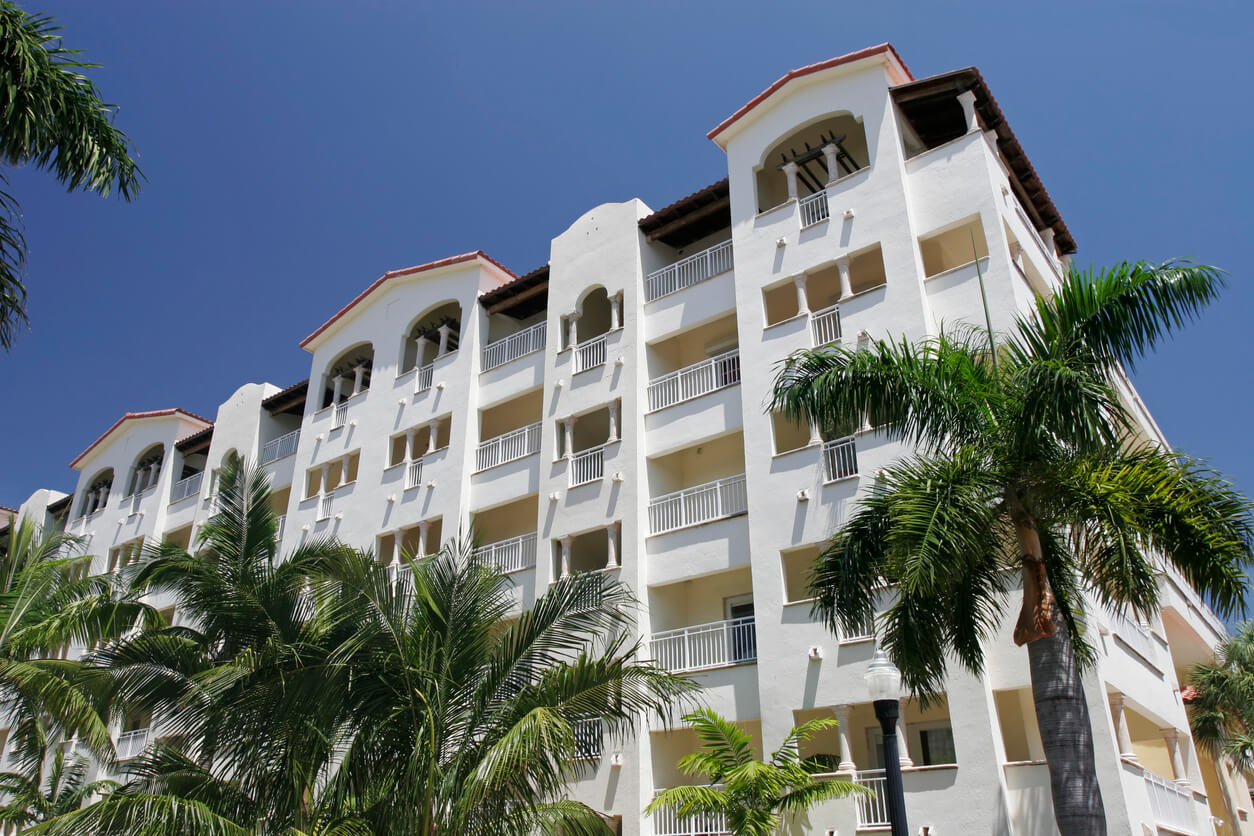Florida will require statewide recertification of condominiums over three stories tall under new legislation. Senate Bill 4-D was signed into law in May of 2022 as a response to the Surfside condominium collapse that killed 98 people. SB 4-D modifies Florida Statutes Chapters 553, 718, 719 and 720. The laws aim to protect owners and help prevent such a tragedy from ever occurring again.
This new bill will impact over 1.5 million condominium units, or 28,000 associations, in Florida. Most of the provisions of the law will take effect at the very end of 2024, but boards and managers should begin thinking about the implications right now.
SB 4-D and SB 2-D
The House unanimously passed SB 4-D during a special session that was initially called to address wildly expensive property insurance rates. The condominium safety bill was added to the agenda, and was immediately passed by the Senate.
Senate Bill 4-D: Building Safety
This bill establishes a statewide structural inspection program. There are two main items that condo and co-op communities must address – Milestone Structural Inspections, and Structural Integrity Reserve Studies. The legislation includes a framework that took many CAI public policy recommendations into consideration. Those points include:
- Inspections for buildings when they reach 30 years. Inspections must occur every 10 years thereafter
- Mandatory reserve studies and funding for structural integrity components such as floors, windows, plumbing and electrical
- Inability to opt-out of funding of reserves for structural integrity components
- Mandatory owner and resident access to building safety information
- Clear developer requirements for building inspections, structural integrity reserve study, and funding requirements prior to transition to residents
- Engagement of the Florida Department of Business and Professional Regulation and local municipalities to track condo buildings and the inspection reporting
Milestone Structural Inspections
A Milestone Structural Inspection is a structural inspection of a building conducted for the purposes of determining a building’s life safety and structural component integrity or adequacy. These inspections must be performed by a licensed engineer or architect.
Under the new Florida law, associations that are 3 or more stories high must pay for Milestone Structural Inspections by December 31 of the year in which the building turns 30 years old. Milestone inspections must continue every 10 years thereafter.
For condominiums located within 3 miles of a coastline, a milestone inspection must occur when the building turns 25 years old, and must continue every 10 years thereafter.

If an association is already more than 30 years old, it must conduct a milestone inspection before December 31, 2024.
Associations are responsible for all costs associated with the Milestone Structural Inspection. Once complete, the condo will receive a report. This is an official record that the association must keep for 15 years.
Any tenant of a unit within the building has a right to inspect the report. Furthermore, prospective purchasers have a right to inspect the report.
With this new law in place, it is considered a breach of a board member’s fiduciary duties if an officer or director willfully and knowingly fails to have a Milestone Structural Inspection performed.
Structural Integrity Reserve Study (and reserve funding requirements)
A Structural Integrity Reserve Study is a study of an association’s reserve funds. Reserve funds are designated for future major repairs and replacements of a condominium’s common areas. The Structural Integrity Reserve Study must consist of a visual inspection of the common areas by a licensed engineer or architect. There are several components that require inspection identified in the new bill.
Condos must have a Structural Integrity Reserve Study done every 10 years, with the first study completed by December 31, 2024.
Associations cannot refuse to fund, or knowingly underfund the reserves for items required to be included in the Structural Integrity Reserve Study. Furthermore, by the end of 2024, a condo may only use itemized reserve funds for their designated purposes if the item is one that must be included in the Structural Integrity Reserve Study.
The finding from this study must be maintained by the association for 15 years. A prospective buyer is entitled to inspect an association’s most recent Structural Integrity Reserve Study. If the association hasn’t completed a Structural Integrity Reserve Study, the prospective buyer may ask for a written statement explaining that the association has not completed the study.
Under the new law, it is considered a breach of an officer’s or director’s fiduciary duty if the association fails to complete a Structural Integrity Reserve Study.
SB 2-D: Property Insurance
As mentioned earlier, a special session was initially called to address costly insurance rates. Admittedly, SB 2-D won’t do very much to help with that problem. Florida has one of the highest average costs of property insurance in the nation, and rates are continuing to climb. Lawmakers are being pressured to do more, but here’s a glimpse of what the property insurance bill will do.
Under SB 2-D, an insurance company cannot refuse to issue or renew a homeowner’s insurance policy on a home with a roof of less than 15 years, solely based on the age of the roof.
If a roof is more than 14 years old, an insurance company must allow the homeowner to have a roof inspection performed by an authorized inspector before requiring the roof to be replaced in order to have a policy issued or renewed. The owner must pay for the cost of the inspection.
The insurance company may not refuse to issue or renew an insurance policy solely because of roof age if an inspection indicates that the roof has five years or more of useful life.
An insurance company must conduct a physical inspection of the property within 45 days of receiving a proof of loss statement. This requirement does not apply to hurricane claims.
Insurance companies must notify policyholders of their right to receive any detailed report/estimate developed by the adjuster. The report must be delivered to the policyholder within 7 days of the request or the completion of the report, whichever is later.
If there is a difference in the claim payment and the estimate, insurance companies must provide a reasonable explanation of the claim decision.
It’s a good start, but there’s still work to be done
The laws passed in 2022 are designed to help ensure that nothing like the Surfside tragedy ever happens again. But there is real concern that there simply won’t be enough licensed engineers or architects to get the work done in time. Jason Pizzo, the senator who represents Surfside, said there are about 650 certified structural engineers in Florida. Since inspections are not their only jobs, it’s going to be a challenge for them to meet the demands of associations. There is also a question as to whether the state Department of Business and Professional Regulation has enough staff to handle condo regulation.
Associations that are not in the best financial situations will need to start planning for how they are going to pay for inspections, and work that needs to be done after inspections are complete. Condo owners should not be surprised by higher monthly fees or special assessments in the next few years.
Boards and owners looking to learn more about condominium safety can visit this CAI resource page. The information here can help condo members better understand structural integrity, maintenance, and reserves.


